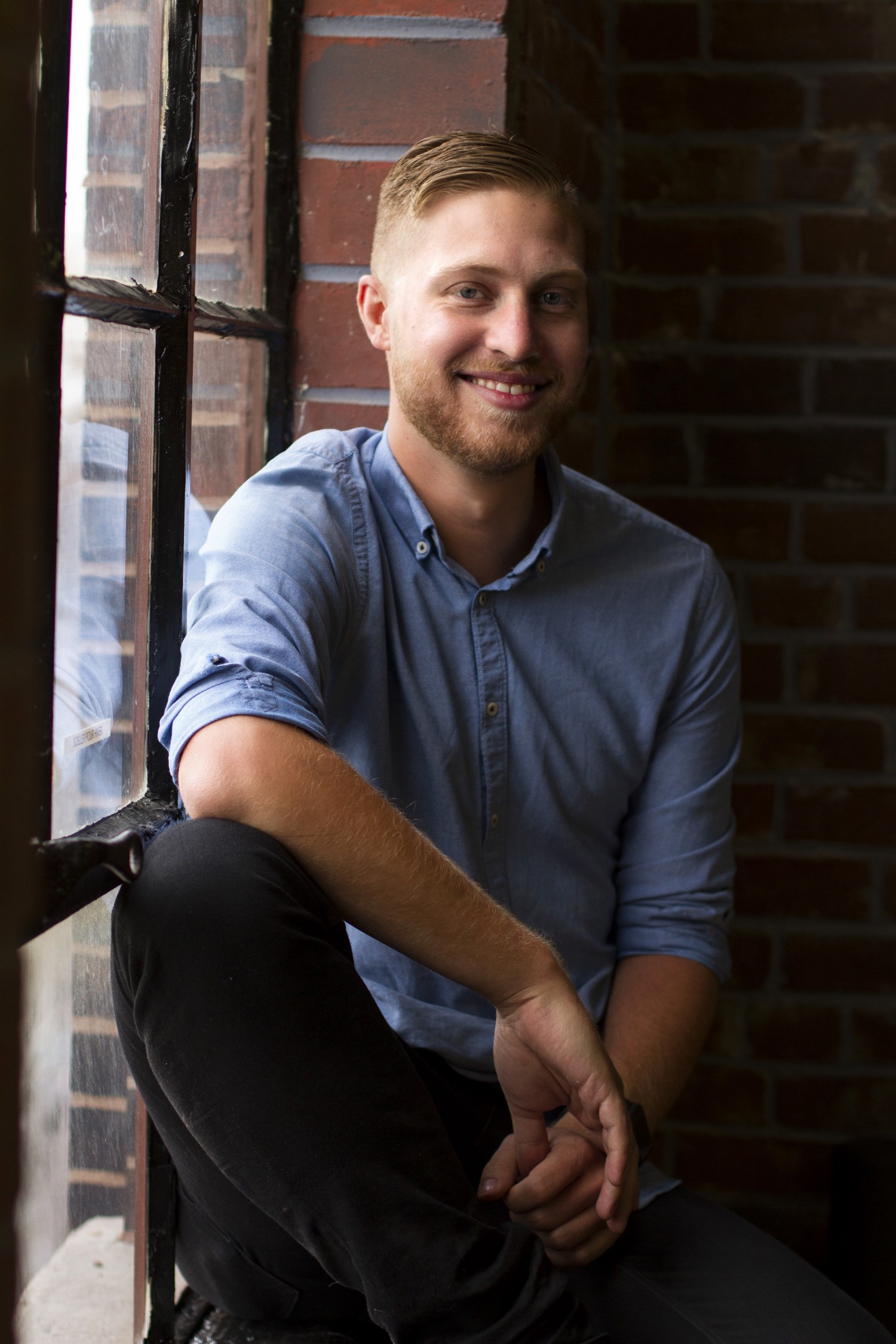“I started my company because I wanted to improve financial literacy and financial inclusion, and I hope that this will start a positive movement here in Canada and abroad, too. Our research has found 1 in 2 Canadian millennials has less than $1,000 in savings, which I wanted to change. With Mylo, we’re trying to help by making it easier to save and invest, no matter how much money you have. Everyone deserves the opportunity to achieve their goals.”
I had the pleasure of interviewing Phil Barrar, Founder and CEO of Mylo. Phil is on a mission to help Canadians achieve their financial goals with the personal finance app Mylo. Although it’s only been a year since Mylo officially launched, Phil has already raised $3.9M, acquired an asset management firm with $120M AUM, scored a deal on CBC’s Dragons’ Den and been named one of Bay Street Bull’s 30 under 30 for 2018. Mylo has the largest share of the robo-advisor market in Canada, and is already helping more than 65,000 users invest over $5 million in spare change.
Thank you so much for doing this with us! What is your “backstory”?
Thanks for speaking with me! I’m a serial entrepreneur, and I build sustainable businesses that use technology to make a positive social impact. I’ve actually been building things since I was a kid growing up outside of Boston, but my career as a an entrepreneur really began after I moved to Montreal to pursue undergraduate studies at Concordia University. There was no entrepreneurship program at Concordia at the time, so I started one, and went on to become President of the Entrepreneurship and Management Association, leading the group with a strong focus on making a social impact. Right after I graduated, I bootstrapped my first company — an app to help ski patrollers save lives — with $6,000 of my own money. My second company, MyPiece, was a marketplace app that helped restaurants reduce waste by selling perishing inventory to hungry students on a budget. We sold the company in six months. Last year, I founded Mylo with the social mission of empowering Canadians to achieve their financial goals, and we’ve been working hard to improve financial inclusion. Today, Mylo is Canada’s fastest growing fintech company, and we’re just getting started.
Can you share the funniest or most interesting story that happened to you since you began leading your company?
A year ago, we were invited on CBC’s Dragons’ Den (the inspiration for Shark Tank) to pitch Mylo. To celebrate the episode airing this March, we had a viewing party and invited everyone who has helped Mylo grow. It was a surreal experience to watch our pitch because so much has happened since the taping. At the time, Mylo was still in beta and we were just a small team that was fundraising for our seed round and working out of our founding investor’s incubator. Today, we number over twenty, we’re working out of our own brand new office and, after a very successful seed round, we’re looking ahead to Series A. More importantly, Mylo is helping more and more Canadians achieve their financial goals.
What do you think makes your company stand out during these disruptive times? Can you share a story?
Mylo is a personal finance app that rounds up your purchases and automatically invests the spare change in a diversified portfolio of ETFs. Our users pay a flat $1 per month fee for the platform, no matter how much money they have or how little they invest. Mylo stands out because we have a strong value proposition that resonates with our users. We saw a widespread demand in the marketplace and filled it. Users were waiting for a service that would make it easy to save and invest Mylo isn’t just accessible, it’s also stress-free: Our portfolio managers take care of all the details so users don’t need any specialized knowledge to start investing. Plus, at one dollar a month, Mylo is the most affordable investment option for most Canadians. Users like paying a low flat fee for something they want to be doing but that has traditionally been more difficult to start.
Many of our users are saving and investing for the first time, and I love to see how they become more curious about the world of investing as time goes by. Ultimately, Mylo is the catalyst for financial literacy. In fact, I recently learned that a teacher was using Mylo to show her kindergarten class the basics of saving and investing. It’s really heartwarming to see what you’ve made being used for good.
What advice would you give to other CEOs or founders to help their employees to thrive?
Helping your employees thrive starts with unifying the team around a shared mission. In our case, we’re all behind the mission to make saving and investing accessible to all Canadians. As a mentor to new founders, I always tell them to remember that great ideas come from customers, not entrepreneurs. That means that no matter what kind of company you’re building, you should prioritize customer discovery — and keep checking in with your customers as you grow — to make sure that you’re building a product that they want and need. We have a very collaborative way of working at Mylo. I’ve built my team with this in mind and I’m careful about ensuring that the team feels empowered to bring new ideas forward, or challenge ideas that they may not agree with.
None of us are able to achieve success without some help along the way. Is there a particular person who you are grateful towards who helped get you to where you are? Can you share a story or example?
I am very grateful to all the support and guidance I’ve received from Jay and Dom Ferst, the brothers behind Ferst Capital Partners. Jay and Dom have believed in me and believed in Mylo from the beginning: FCP was our founding investor. They gave us space to work at their incubator FCP Fintech Studio, and they’ve shared their significant fundraising experience with, which was exceedingly valuable while we were raising our seed round and continues to help us today.

Can you share what you believe will be the “Top 5 Fintech and Banking Trends Over The Next 3 Years” (Please share a story or example for each.)
Here are my predictions for the top 5 fintech and banking trends over the next 3 years:
-
Financial products with anything less than a five star rating will go bust
Today’s users expect simplicity and ease of use, but traditional financial institutions are notoriously bad at delivering products that fit this brief. Fintech is nurturing a new generation of innovators who are focused on setting a higher standard for UX/UI when it comes to financial experiences. That’s why we’re going to see fintech companies creating great user experiences for their customers by prioritizing fast and frictionless onboarding and making finding financial services and products fun and easy. -
People will only use one app for all of their financial needs (and it won’t be a bank’s app).
If you bank with several financial institutions now, you know that you have to use several accounts with different digital experiences: Banking isn’t yet a seamless process. To meet customer needs, we’re going to see a lot of reaggregation of financial services, meaning that customers will be able to handle many aspects of their financial life from one convenient platform. WeChat in China is a great example of reaggregation: It’s a messaging app, social media app and mobile payment app rolled into one. We want to do the same thing with Mylo, with a focus on your finances, so you’ll be able to access and manage all aspects of your financial life directly from our platform. -
We don’t want your parents’ banking products (but we wouldn’t say no to their account balance).
We’ve done research that found 53% of Canadian millennials have less than $1,000 in savings, which means that many are not getting the financial services they need to achieve their goals. There’s a great movement in the industry to fix that through financial inclusion, which means a world where everyone has access to sustainable, affordable and useful financial products. We’re using technology to make financial services accessible to all consumers, not just those with the most money or financial knowledge. This means that there will be a focus on pricing transparency. Ultimately, the fintech industry is trying to make managing your finances easy in a way that was previously only available to customers with higher AUMs. We’re democratizing financial services. -
Your banking data is more valuable than your social media data; and it belongs to you!
In Europe, legislation called PSD2 recently passed that stimulates that a user’s personal financial data belongs to them and that they should be able to access and share that data with third parties that can help derive value from it. Right now, in North America, your data belongs to the provider that collects it, but in the future we’ll go the way of Europe, and we’ll see individuals gain greater access to data and the ability to move and use data to benefit themselves personally. -
Friends or Foes? Turns out, FinTechs and banks are a match made in heaven.
There’s a misconception that fintech is a threat to the traditional banking industry. In fact, we’re going to see a lot of collaboration between fintech companies and incumbent banks. Big banks are recognizing that they need fintechs to provide their customers with better digital experiences ad innovative financial products and services, so they will start to partner with, develop or acquire fintech companies that can deliver these more effectively and efficiently. It’s a healthy, symbiotic relationship, however, because fintechs can also benefit from the credibility, trust and consumer reach that big banks bring to the equation.
Can you please give us your favorite “Life Lesson Quote”?

“I am not the business, and the business is not me.” Eytan Bensoussan, a friend and CEO of NorthOne, gave me that advice.
You are a person of great influence. If you could inspire a movement that would bring the most amount of good to the most amount of people, what would that be? You never know what your idea can trigger. 🙂
I started Mylo because I wanted to improve financial literacy and financial inclusion, and I hope that this will start a positive movement here in Canada and abroad, too. Our research has found 1 in 2 Canadian millennials has less than $1,000 in savings, which I wanted to change. With Mylo, we’re trying to help by making it easier to save and invest, no matter how much money you have. Everyone deserves the opportunity to achieve their goals.
Originally published at medium.com


